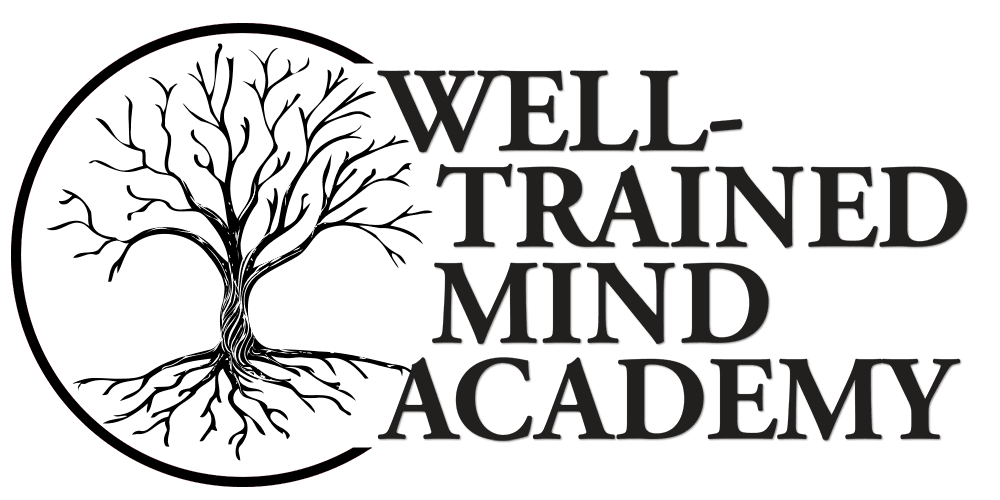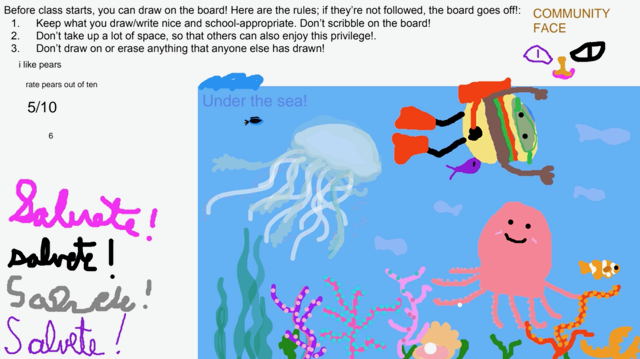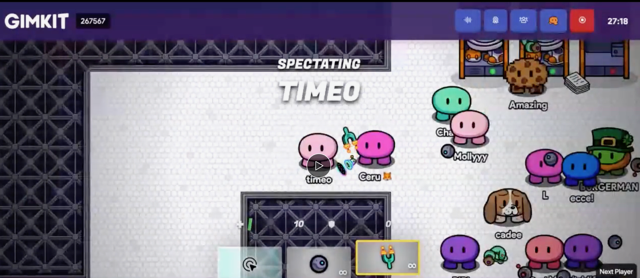Why You Should Take Latin at Well-Trained Mind Academy
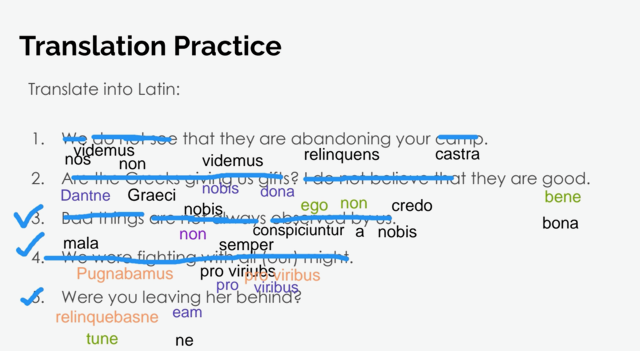
State language requirements are the bane of many home school students. And because so few home school families already have a second language they speak at home, they turn to Latin. Year after year, they slog through memorizing verb conjugations and adjective declension. But why plow through on your own, when the language – and the rich culture and history of the people who spoke and wrote in Latin – could come alive?
Leave rote learning behind and join other students in our live, online classes! You’ll be challenged and engaged while learning about this wonderful ancient language.
Contents
Fortis Soli, Fortiores Una! (Strong Alone, Stronger Together)
Of course you could learn Latin on your own. After all, Latin learners are reading and translating, not speaking and writing. However, Latin learning is much more fun (not to mention more effective!) when students participate in a vibrant classroom led by an expert instructor. We’re fortunate to offer such classes at WTMA.
Our live Latin classes are student-centered. Our instructor, Magistra Heflin, builds in time for questions, explores unexpected tangents sparked by student curiosity, and adjusts lessons in real-time to meet the class’s needs. This flexibility ensures that learning is engaging and relevant. Whether a student prefers speaking, writing, or even drawing their responses on the virtual whiteboard, there are a variety of opportunities for student participation. All of these modes allow the student to demonstrate their learning, and allow Magistra Heflin to assess student learning quickly and effectively.
Magistra Heflin, who has a Master of Arts in Teaching Latin and Classical Humanities from University of Massachusetts at Amherst, (a program specifically designed for training exceptional Latin teachers), uses both her education and over 20 years of teaching experience to lead fantastic class sessions. She knows where students are likely to falter and struggle, and she’s ready to guide them to success with the teaching techniques and approaches she’s developed over the years.
Latin class is its own learning community. Students in WTMA Latin classes form close bonds, with their own built-in support network. Over years of class together, they create quirky traditions like contributing to the group whiteboard drawing before class (for example, Latin IA draws Roman military standards every day, and Latin IB has inspirational quotes from a turtle), and their own in-jokes. For some activities, the students form teams, and these teams create their own identities. Examples of competitive tasks students enjoy include simple whiteboard work, acting out the roles of characters from the textbook, or collaborating on their own fanfiction for those same characters and sending them on new adventures. All of these activities help students make meaningful connections in our virtual classrooms.
Connect the Past to the Present
Our Latin 1-3 classes use the “Latin for the New Millennium” textbooks, a fantastic series that strikes a balance between rigorous grammar instruction and engaging storytelling. Students read and interpret adapted works from various Latin authors, from Cicero and Catullus in Latin I to Ovid in Latin III. The breadth of reading provides early familiarity with key figures and themes, which is especially helpful when students encounter these authors in more advanced Latin courses, or in science and history studies. The Latin curriculum at WTMA draws on historical, scholarly and theological texts from over two millennia. Latin grants students access to these texts, and their language abilities open doors to understanding these texts and ideas in ways that a translation simply can’t.
Latin study connects stories from the past to the present. For example, when students read a passage adapted from Ovid’s Metamorphoses, they’re not just translating the myth of Pyramus and Thisbe. First, they learn that ancient stories either explained concepts the ancient people didn’t yet understand, like the presence of natural phenomena, or they were told as cautionary tales to help shape one’s morals. From there, students tend to hear the echoes of these stories across the literary cannon, from Romeo and Juliet to an episode of the Simpsons. On a deeper level, they see that because these stories are meant to teach the reader a life lesson, the same themes are seen over and over in the texts they read for class, or for pleasure.
In addition, Magistra Heflin connects political ideas and historical events to our world today. Latin I students learn about how the Roman legal system worked when they learn about the Catilinarian conspiracy of 63 BCE. Students then make comparisons to our own systems of law and justice; for example, the current legal system in the United States relies on experts and evidence where the Roman system mainly relied on the rhetorical skills of one’s lawyer and the testimony of eyewitnesses. These connections make learning relevant, spark a deeper appreciation for history and culture, and inspire students to think deeply about the world they move in every day.
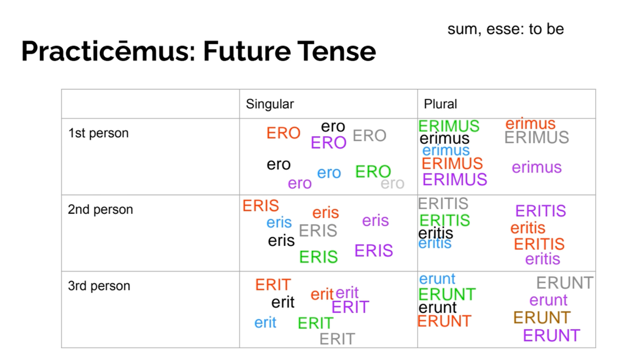
Build Great Learning Skills and Habits
Magistra Heflin’s classes are highly organized. She provides students with clear expectations, consistent structures, and ample communication. Guided note sheets, regular announcements, and well-defined assignments help students develop crucial organizational and executive functioning skills that they can apply to all of their classes. Students just starting online classes will find they will learn not just Latin in the first levels of the course, but also important study skills and habits that will set them up for future success in all of their schoolwork.
Again, students who take Latin often find that the language enhances their understanding of other subjects, particularly history and literature. Familiarity with Latin vocabulary and Roman history provides a valuable framework for comprehending ancient civilizations and the roots of Western literature. For example, in a recent Latin 1B class, students read the Cupid and Psyche myth. Several students noticed that aspects of that story are similar to fairy tales that came later, like Beauty and the Beast, Rumplestiltskin, and Bluebeard. They drew on their knowledge and practiced their narration skills by explaining the connections with the rest of the class. Not only did the students unfamiliar with the stories gain access to a deeper understanding of the text, but the sharing of knowledge with classmates ultimately made the work of understanding the text that much more enjoyable.
Latin comes alive–and continues to be very relevant – to the students in Magistra Heflin’s classes. For example, in one Latin II lesson students read a passage adapted from the De revolutionizes urbium caelestium (“About the Revolutions of the Celestial Bodies) of Copernicus. Copernicus explained the general belief of the time– that the earth was the center of the universe because all things fell to it (gravity) and that it couldn’t move (rotate) because the violent force it would take to move such a heavy object would fling everything off of it. Magistra Heflin gave students the general background info, and the students then brought their own science and history knowledge into a more in-depth discussion of the material. That day’s lesson, like many of the lessons in WTMA Latin classes, was about so much more than just translating the material.
These experiences are common in Latin classes at WTMA. Our group class setting creates a comradery of learning, and one student’s question sparks further inquiry for other students. Under the expert guidance of Magistra Heflin, students in our small, focused, and very fun Latin classes connect deeply with the language, its rich history, and each other. Latin at WTMA is “Sui Generis,” literally “of its own kind.”
Enroll your student in Latin at the Well-Trained Mind Academy and experience it for yourself!
What Parents Have to Say About Latin at WTMA
“Ms. Heflin is an excellent teacher. She has a wonderful method of instruction that encourages her students to improve and gain a deeper appreciation of Latin. Very grateful to her for her hard work and support of the students!” -Latin IV/V Parent
“The teacher is very engaged with the material, and her background knowledge in the field makes the class all the more interesting.” -Latin III Parent
“Mrs. Heflin did a wonderful job helping our daughter transition from another Latin curriculum/provider to WTM. Hannah has really enjoyed her class this year.” -Latin II Parent
“My student has struggled with the memorization needed to learn a new language but this instructor has been very patient and effective in helping him grow!” -Latin IB Parent
“I have been extremely impressed with the instructor and the time she takes to give thoughtful feedback for assignments.” -Latin IA Parent
Studying Latin at The Well-Trained Mind Academy
Latin study at the Well-Trained Mind Academy offers an engaging path to understanding language and history. Led by our expert Latin instructor, Alexis Heflin, WTMA Latin builds an important foundation for future learning. Sign your student up for our Latin classes here!
